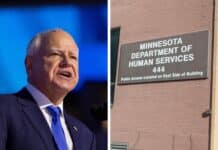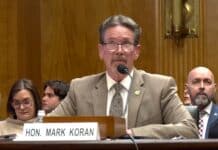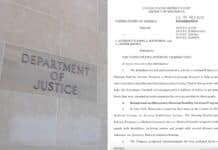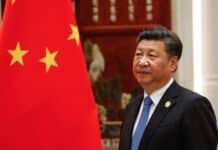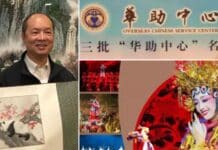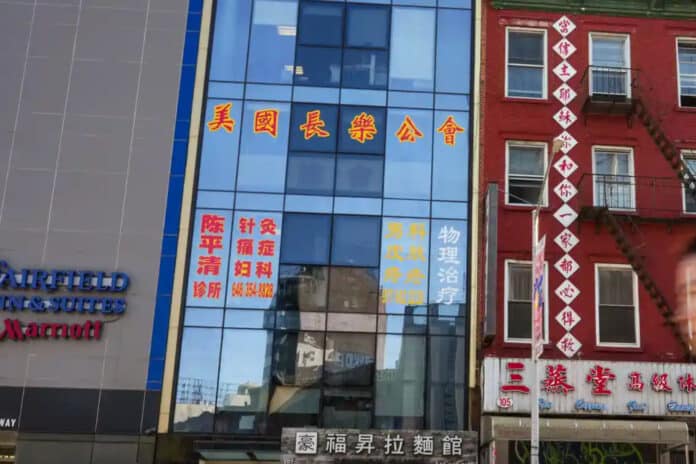
The Department of Justice announced charges this week against two men who allegedly opened and operated an “illegal overseas police station” in lower Manhattan on behalf of the Chinese Communist Party (CCP).
The purpose of this operation was to “monitor and intimidate dissidents and those critical” of the Chinese government, Assistant Attorney General Matthew Olsen explained in a Monday news release.
A Politico report called the charges the “tip of a global iceberg of Beijing’s overseas repression operations.”
Indeed, according to a New York Post report, there are at least six other secret Chinese “police stations,” formally called “Overseas Chinese Service Centers,” throughout the U.S., including one in Minnesota.
The Post report cites research conducted by Safeguard Defenders, a Madrid-based human rights organization.
“We found at least four listed in the U.S. by PRC [People’s Republic of China] public security authorities, plus flagged an additional four overseas Chinese service centers in the U.S. set up by the UFWD networks responsible for manning the stations,” a Safeguard Defenders spokesperson told The Post.
The United Front Work Department (UFWD) is a Chinese government agency, The Post report says, noting that the overseas centers often use nonprofits and community groups as a front for their illegal activities.
“Harry” Lu Jianwang, 61, of the Bronx, and Chen Jinping, 59, of Manhattan, were arrested Monday and charged with conspiring to act as agents of the People’s Republic of China and destroying evidence of their communications with a Ministry of Public Security (MPS) official.
The defendants worked together to establish the first overseas police station in the United States on behalf of the Fuzhou branch of the MPS, the DOJ said. The police station was located in an office building in Manhattan’s Chinatown and closed last fall after the defendants were alerted to the FBI’s investigation.
The DOJ said Lu was “enlisted in efforts” to pressure a Chinese “fugitive” to return to his home country, reportedly a common and successful tactic of the CCP. The victim and his family were harassed and threatened with violence, according to the DOJ.
Lu was also involved in locating a “pro-democracy activist” for the Chinese government, the DOJ said.
“This prosecution reveals the Chinese government’s flagrant violation of our nation’s sovereignty by establishing a secret police station in the middle of New York City,” said U.S. Attorney Breon Peace for the Eastern District of New York.
“As alleged, the defendants and their co-conspirators were tasked with doing the PRC’s bidding, including helping locate a Chinese dissident living in the United States, and obstructed our investigation by deleting their communications. Such a police station has no place here in New York City — or any American community,” he added.
University of Minnesota
The Star Tribune published a series of reports in 2020 on the University of Minnesota’s close connections to China. According to the reports, more than 3,000 Chinese students were enrolled at the university at the time along with more than 230 professors and 400 visiting faculty.
The reports said university leaders and staff had made more than 700 trips to China over the prior three years to recruit students, “pursue research collaborations, nurture relationships with alumni and sign partnership deals with Chinese universities.”
A timeline published with the reports said former university president Eric Kaler visited China eight times during his tenure. In 2019, the school stopped accepting gifts from Huawei, a Chinese telecommunications company, which was later accused of stealing trade secrets from U.S. counterparts and designated a national security threat.
The university shut down its Confucius Institute that same year, as did several other schools throughout the country. The cultural programming centers were funded by the Chinese government and accused of advancing a “state agenda in the recruitment and control of academic staff, in the choice of curriculum, and in the restriction of debate.”
In February, Grand Forks announced that it would deny building permits to a Chinese-based manufacturer that purchased land next to a U.S. Air Force base. The Air Force called the purchase a “significant threat to national security.”
The DOJ has separately charged 40 MPS officers who allegedly “perpetrated transnational repression schemes targeting U.S. residents whose political views and actions are disfavored by the PRC government.”

